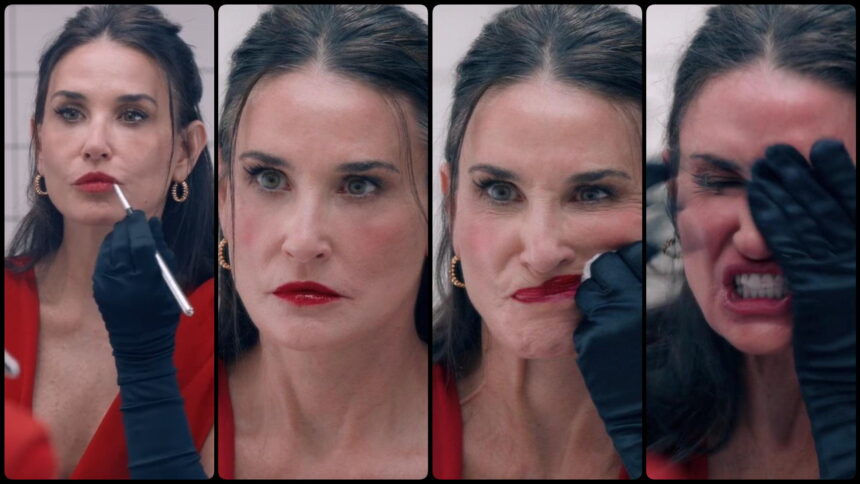What happens when a Hollywood icon stares into the mirror and doesn't just see her reflection, but the weight of decades of societal expectations? Demi Moore's latest film, The Substance, isn't just a movie—it's a visceral, unflinching exploration of self-image, aging, and the brutal standards women are forced to internalize. Directed by Coralie Fargeat, this body-horror black comedy has already earned Moore her first Oscar nomination, and it's not hard to see why.
In The Substance, Moore plays Elisabeth Sparkle, a fading star who turns to a mysterious drug to create a younger version of herself, Sue (Margaret Qualley). The film is a grotesque, often darkly funny allegory about the lengths women go to in order to stay relevant in a youth-obsessed culture. Moore's performance is raw, vulnerable, and deeply meta, drawing on her own experiences with fame, body image, and the media's relentless scrutiny.
The film's most striking scenes involve Elisabeth confronting her reflection—sometimes literally, as she interacts with a giant portrait of her younger self. These moments are uncomfortable, even painful to watch, but they're also where Moore shines brightest. “I feared being repetitive,” Moore admitted in an interview. “But we all know our tendency is to find what's wrong when we look in the mirror. I just utilized that.”


What makes The Substance so compelling is its unrelenting honesty. Fargeat doesn't shy away from showing Elisabeth's physical and emotional deterioration, often through extreme close-ups and clinical nude scenes. Moore, now 62, embraces these moments with a courage that feels revolutionary. “Knowing that my flaws would be exaggerated was a wonderful opportunity to step out of my comfort zone,” she said.
The film also serves as a poignant commentary on Moore's own career. In the '90s, she was Hollywood's highest-paid actress, but her success came with a cost. She faced brutal media backlash, particularly after her $12.5 million paycheck for Striptease earned her the nickname “Gimme Moore.” Her struggles with an eating disorder and the paparazzi's relentless focus on her personal life are echoed in Elisabeth's journey.
But The Substance isn't just a critique of the past—it's a hopeful look at the future. Moore's Oscar nomination feels like a long-overdue acknowledgment of her talent, and the film's success suggests a growing appetite for stories that challenge traditional beauty standards. As Moore put it, “There's an audience interested in these stories about different types of women in different worlds.”
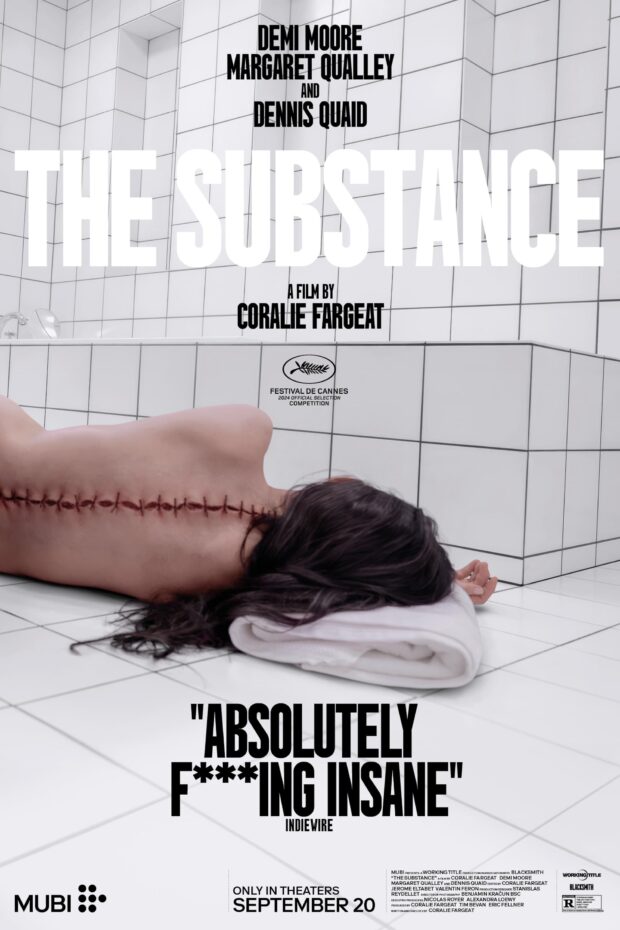
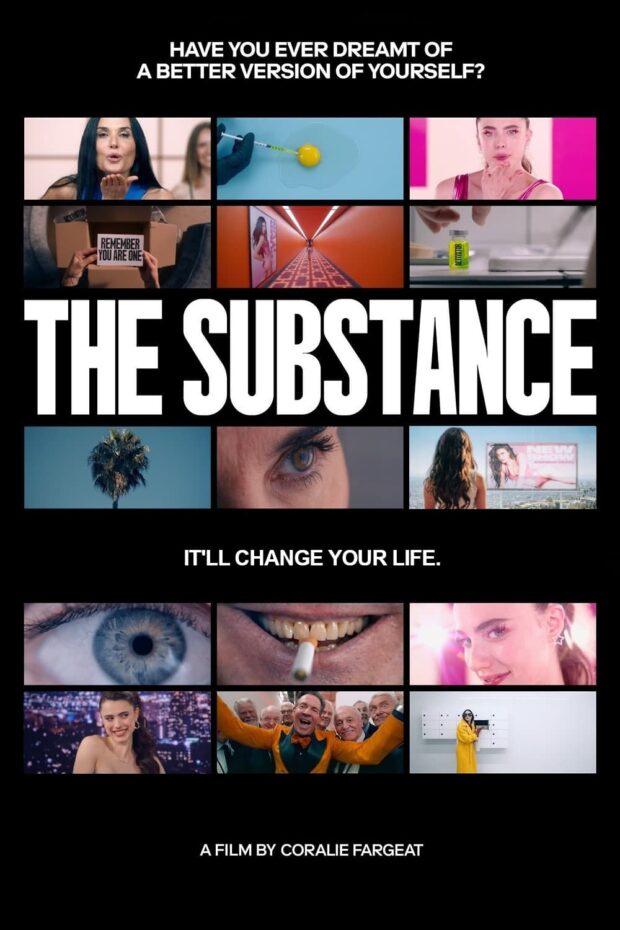
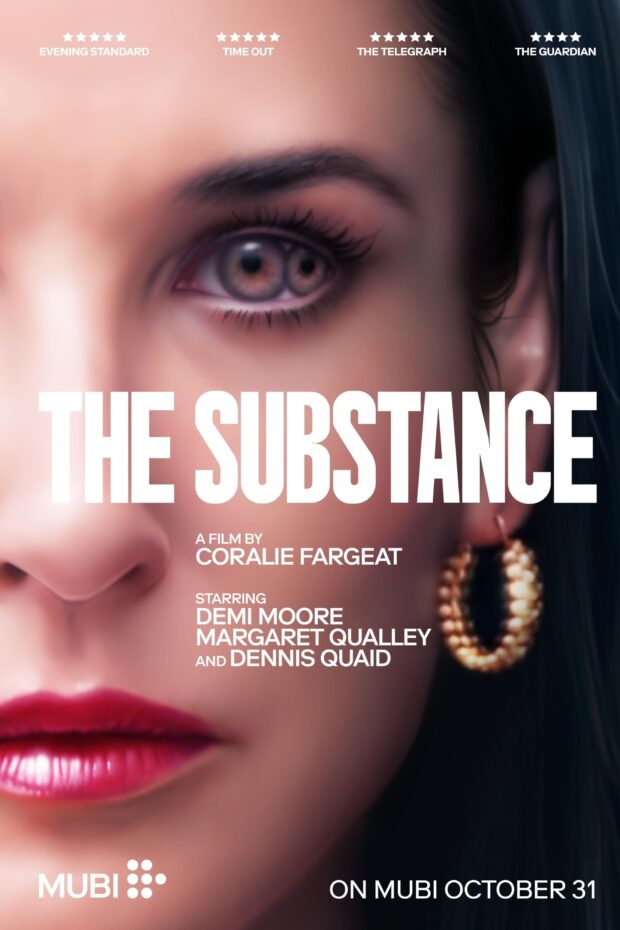
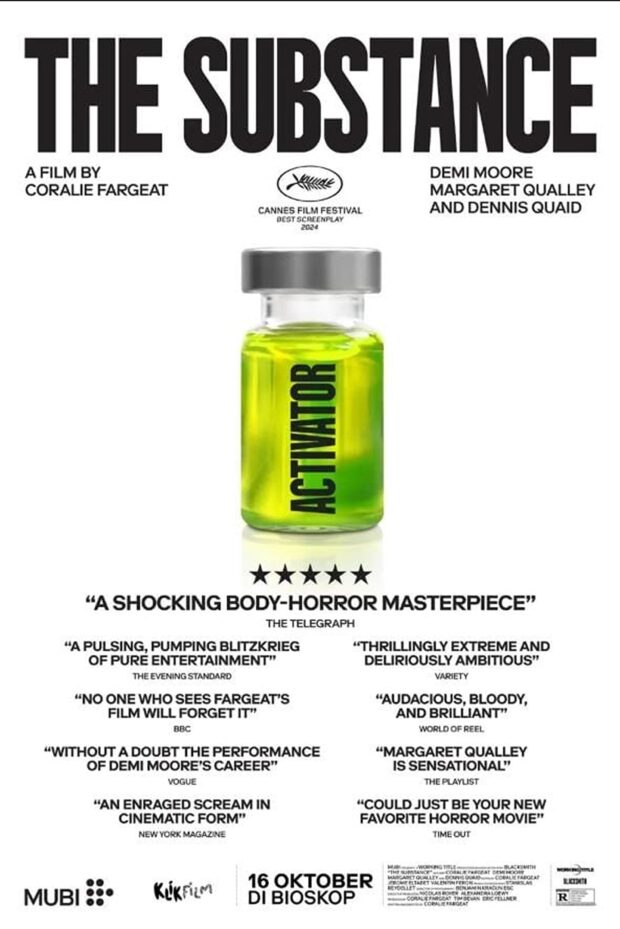
Conclusion:
The Substance is more than a film; it's a cultural moment. By confronting the ugliest aspects of self-image and aging, Demi Moore and Coralie Fargeat have created something truly transformative. In a world where social media amplifies compare-and-despair, this movie feels like a necessary antidote. It's a reminder that beauty isn't about perfection—it's about authenticity.
Personal Impressions:
What struck me most about The Substance is its bravery. Moore's willingness to expose her vulnerabilities, both physical and emotional, is nothing short of inspiring. The film's grotesque imagery might not be for everyone, but its message is universal. It's a rare movie that doesn't just entertain but also challenges you to reflect on your own relationship with self-image.
Do you think films like The Substance can change the way society views aging and beauty standards? Or are we too entrenched in our obsession with youth?

